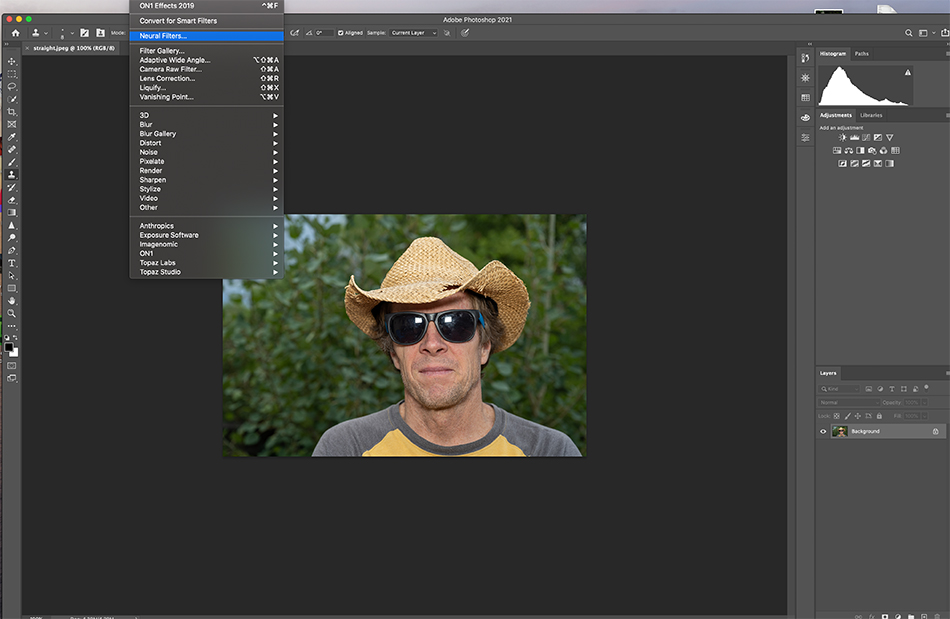
After the amazing Sky Replacement feature that was added to the latest version of Photoshop, my next favorite new feature are the Neural Filters. This is a brand new filter option, and offers tons of new potential. Right now neural filters are in beta form, but it is obvious future updates will continue to improve and refine the filters. To select neural filters, go the menu bar, choose filters and scroll down to neural filters.

When you open your image, you will have 14 filters to consider. If you don’t see all the filters, just click the ‘beaker’ icon below the neural filter name. At this point many of the filters are still in development, but a few are available to use in beta form. Take a look at my cowboy portrait we did during our online speed light class (social distancing limited model access, so selfies worked great!). Click on the ‘smart portrait’ button to open the window of this filter. Now the fun begins!

Smart portrait gives you new, more intuitive control of altering a portrait. What I really like is the name of the slider…happiness, surprise and anger…to funny! As you can imagine, when you grab the happiness slider and pull it to the right, my smile increases to the point of where Photoshop actually creates teeth in an open smile. Try it with an image where someone is already open mouthed and smiling, you will get better results. For the image above I used the ‘surprise’ slider to improve my smile.
This filter reminded me of Portrait Pro. There are options to change head direction, thicken hair and change my age…wow. And take a look at the other filters that are coming. Photoshop as well as others are heavily incorporating machine learning and AI into their processing power, and the results are staggering. Just take a look at Sky Replacement. This filter can replace a sky with a perfect selection and blend with one click, a task that took 30 minutes or more just a few weeks ago. I’m very excited to see the neural filter versions of noise reduction and super zoom (image enlargement), editing will dramatically evolve as these new filters are developed.